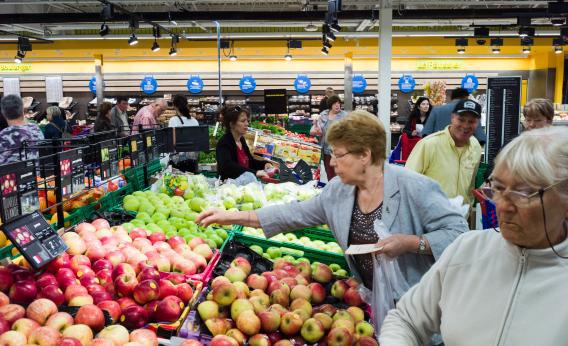One of the last bastions of nonbranded food, fresh produce, may soon bear logos, wordmarks, and other graphics. Smithsonian’s Smart News blog highlights a Spanish company with the fantastic name Laser Food, which uses laser technology to print text and images on the surface of fruits and vegetables. “The Laser Mark System does not burn the surface of the fruit, instead removing a microscopically small area of fruit skin that discolors rather than burns the product without touching or harming cells in the skin surface,” according to Europe’s Laser Mark project (in which Laser Food is a partner). The idea has been around for a while—the USDA’s Agricultural Research Service investigated laser etching in 2009, and the Laser Mark project has been promoting the technology since 2010—but only in the past year has the technology spread from Spain to gain traction in France, Italy, and Poland.
It’s not hard to see the advantages of such a system: “Tattooing” fruits and vegetables obviates the need for those annoying little PLU stickers that always have you accidentally puncturing tomatoes with your fingernails. And, judging from Laser Food’s photo gallery, the Spanish technology is a big aesthetic step up from previous iterations: The USDA’s 2009 effort yielded a grapefruit bearing the words “Florida citrus” in a drab font, but Laser Food allows for much more nuanced designs on all kinds of produce: kiwis, squashes, apples, bananas. My favorite example from the gallery is easily the watermelon etched with a picture of a soccer ball and the words “Polska Gola!”—“Poland goal!” The potential for fun, kid-friendly designs is vast.
Still, the laser technology seems destined to be used mainly for marketing purposes: Laser Mark boasts that it “gives both growers and retailers the ability to add more value to fruits and vegetables at the point of sale by allowing them to safely add brand names and logos to fresh produce.” I’m all for innovative ways for farmers to earn more money, but if it’s a choice between a more expensive corporate-sponsored apple and a less expensive one au naturel, I’ll probably take the latter.
